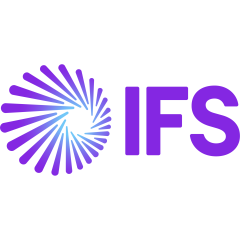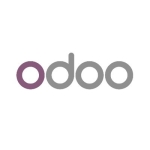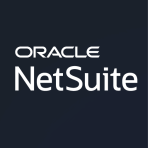What is our primary use case?
I am employed in a Swedish company that sells cosmetics directly through bank partners and not through stores. We have many use cases of the solution in our company. The tool is mainly used for backend processes or backend services which include product development, HR, finance, supply chain, and warehousing.
How has it helped my organization?
When it comes to financing, the solution has helped us to concentrate finance functions like accounting processes in one system. This includes about 70 internal entities around the world.
What is most valuable?
The solution is an ERP system that incorporates more or less the standard features that are expected from such a tool. It would be very hard to pick out a feature that can be called special since the spend of the tool is so wide. None of the features are really perfect. It is one big compromise.
What needs improvement?
We have upgraded to the latest version right now. We have issues with the quality. We tried to enroll in their Evergreen program which was meant to help us adopt any service update or anything that the tool’s providers come up with. However, the tool always causes disruption to the business because of issues with quality, general compliance, and others. There is also the issue of missing functions. Some finance people would expect the invoicing behavior to be closer to SAP. They need to think about a different approach in advanced invoicing or something like that.
I also have issues with the quality of new releases. In the past, we had to upgrade only every four or five years. We expected it to be a big project. However, when we attempt to do every single update that pops up, it keeps us busy constantly.
Buyer's Guide
IFS Cloud Platform
December 2025
Learn what your peers think about IFS Cloud Platform. Get advice and tips from experienced pros sharing their opinions. Updated: December 2025.
879,310 professionals have used our research since 2012.
For how long have I used the solution?
I have been using this solution since 2020.
What do I think about the stability of the solution?
I would rate the stability of the solution a nine out of ten. The stability is quite okay since we have not experienced any blackouts, maybe two of them in India only.
What do I think about the scalability of the solution?
I would rate the scalability of IFS Applications as a seven out of ten. This tool is used by about 500 users in our company. However, since we use the enterprise license, there is a case of live use where we can use the expense-approving features and more. Therefore, I expect almost every employee in my company to use the solution.
IFS Applications are multi-site systems where we can extend the usage by opening new sites. We don’t use many instances of the multi-site feature of IFS. However, I have seen it in the past.
We are rolling out HR, warehouse management, and perhaps manufacturing in the future. Therefore, there can be around 400 heavy users and thousands of light users for approving things. The number of users is expected to grow quite soon.
How are customer service and support?
I have contacted tech support many times. The support is slow since some issues take ages to be taken care of. I would rate the support a five out of ten.
How would you rate customer service and support?
Which solution did I use previously and why did I switch?
We have used Fourth Shift which our manufacturing functions are still using. Fourth Shift is really ancient and looks like an 80s product without an advanced user interface. Our architecture is much more modern and easier to handle.
How was the initial setup?
I have experience with the implementation of IFS version 2003. We have been upgrading this solution and have experience with every second major version.
I would rate the implementation of the solution somewhere around seven and eight. I wouldn’t say that there is anything special about their implementation. There is the documentation methodology and consultants for it.
We don’t host a single server. It is outsourced to a third party. Everything is hosted either in the hosting center, Azure, or IFS which we rented as a service. It is really hard to comment on the time taken for deployment since it varies based on implementation and upgrade. Moreover, the projects run around the year. The time taken for deployment depends on whether you are installing the solution in one warehouse or in warehouses around the world.
The steps that we take for the deployment of the solution include pre-study, feasibility study, designer bills, user testing, and the ‘go live’ step.
What about the implementation team?
In the beginning, we were cooperating with consultants who were regular local partners. However, we have quite a big expert base now. Therefore, the implementation is through internal consultants.
The deployment project team number can be either five, twenty or even three hundred members, and the users.
What's my experience with pricing, setup cost, and licensing?
The additional cost that comes with the solution includes the overhead of the people who are trying to fix the tool issues. These people are trying to reproduce the issue and report it to the technical support and testing with them which is huge. It is the cost of quality in the end.
Which other solutions did I evaluate?
The choice really depends on the functions. Previously, we used Cornerstone but since some functions like DHL and HR require specialized use, we choose IFS.
What other advice do I have?
I would rate the solution a seven out of ten. We use the enterprise license which includes the maintenance fee. We do the maintenance by ourselves since we have experience in database and application services. There are around four people involved in the maintenance where three would be for support and the rest of them in projects.
I would advise anyone looking to use the solution to make use of initial consultancy as much as possible. Try to get the best consultants who can accelerate your knowledge from the beginning. Also, don’t go for the new releases too fast.
Disclosure: My company does not have a business relationship with this vendor other than being a customer.


















